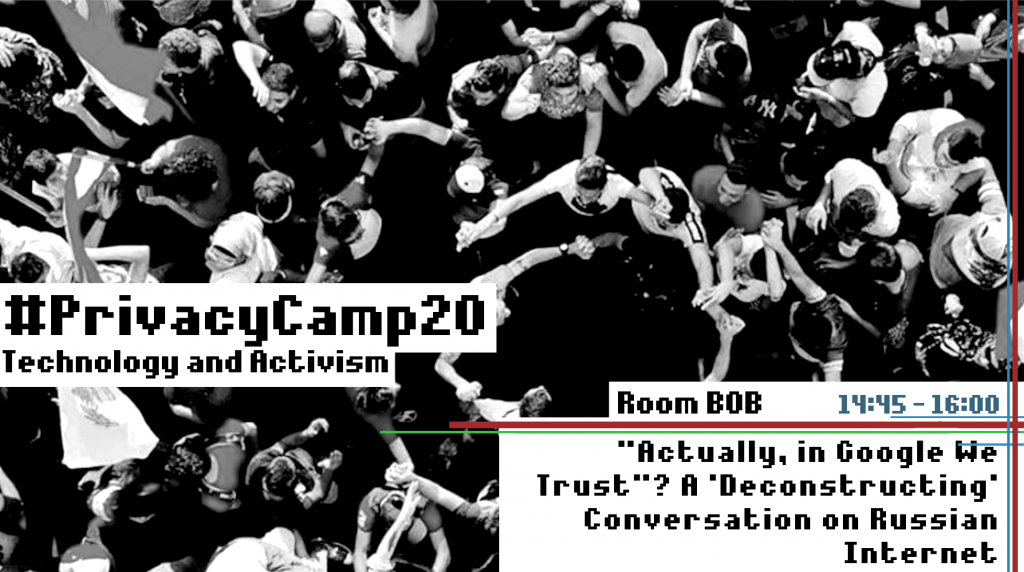Russia is currently a zone of high tension between globalized digital freedoms and national internet management policies, officially justified on grounds of network security. Since the early 2000s, Russia has seen the simultaneous development of a relatively unfiltered and constraint-free web, and of an important set of challenges to civil liberties. Starting in early 2018, the research project ResisTIC (NetResistants: Criticism and circumvention of digital borders in Russia), funded by the French National Agency for Research, has undertaken an extensiveinvestigation of online resistance in Russia that reveals lesser-known social practices and techniques for circumventing online constraints, in particular those related to privacy, security and surveillance.
Sometimes, these practices border on counter-intuitive — for example, as our research team was discussing at length methods and best practices to properly protect the privacy of our Russian activist interviewees for the project, several of them candidly stated to us that they were actually privileging Google or Facebook Messenger as their primary online communication tools. This is because they were much more willing to place their trust that no sensitive information would be disclosed in the ‘giant’, centralized, United States-based platforms with clear ownership and responsibility mechanisms, than in alternative and a priori more “activist-looking” systems where accountability was supposedly less clear due to their very openness and decentralization. Furthermore, as Ethan Zuckerman’s “Cute Cat Theory of Digital Activism” pointed out, due to their activist aspect these platforms risk to attract the attention of governmental censors, whereas centralized platforms offer some form of camouflage to activist users and are harder to block without contention from general user audiences.
This panel seeks to engage in a “deconstructing” and interactive discussion about Russian digital activism, especially its most surprising aspects such as the one described above. The session will start with short pitches (5 minutes each) on the different strands of research conducted by the ResisTIC team, with particular attention paid to ongoing fieldworks and collected empirical material, including:
- the uses of tools such as Telegram, and legal constraints applied to it, in the Russian context;
- the role of digital security trainers in fostering specific models and tools of privacy protection and in adapting to the Russian context a set of “universal” recommendations elaborated by international digital security NGOs;
- the tension between global and local dimensions in the Russian Wikimedia;
- the intense use of Russia’s first social network, VKontakte, in grassroot environmental protests;
- the mimicry of Russian (VKontakte, Yandex) and foreign tools (Facebook, Google) facilitating mixed uses of them.
Building on these pitches focused on the Russian context, we hope to engage in a discussion on how digital activism unfolds in other parts of the world, as different political regimes and notions of privacy, encryption, threat-models, adversaries co-construct one another.
Our objective for the session is to put our research-based insights on Russian digital activism to the test of Privacy Camp’s diverse audience of developers, NGOs and activists worldwide. We also hope that such insights may be of use to them in their daily practices of activism and/for technology.
Moderator:
- Francesca Musiani, Centre for Internet and Society of CNRS, France
Speakers:
- Ksenia Ermoshina, Centre for Internet and Society of CNRS, France
- Sergey Boyko, co-founder of the Internet Protection Society, Russia
- Daniel Lipin, human rights lawyer, intellectual property and digital rights specialist, holistic security trainer, Russia
- Anna ZAYTSEVA, LLA CREATIS, University Toulouse 2 Jean Jaurès, France

Check out the full programme here.
Registrations are open until Friday 17 January, 2020 here.
